By Chuck LeGros
I recently found myself on a befuddled expedition through the streets of State College with a few close friends. In many ways it was an eye opening experience. There are certain life lessons one can only learn from giant ukulele players, late night games of “Apples to Apples,” and terrible alcohol. On the ride home the next day I had a chance to re-read some poetry (“Red Lights for Weary Eyes” and “From A Diner on Wood Street: Musings In Three Movements” both from 174 Publishing) by William James (not the pragmatist William James, who, at least as far as I know, wasn’t that into verse). James, a failed guitarist from Clarion, Pennsylvania, discovered a love for a furious breed of poetry in his mid twenties and it was through this poetry that he began to, as he says, “quiet the restlessness in his head,” a restlessness which thickly coats the often despairing ink webs that flow from his type bars.
I was faced with an immediate problem however—James, a frequent to the world of Slam Poetry—appears to prefer his poetry be listened to and not read. His frantic vocal energy breathes a second life into the words found hanging on the page. I had no choice however; I was given his typed thoughts and not his voice, and would have to participate accordingly.
I opened the cardstock cover of the first collection—“Red Lights for Weary Eyes,” it’s separated into three sections –“from ‘FAILURE SONGS,’” “from ‘TIRED HEARTS/BRUISED BRAINS,’” and “ON THE ROAD: PERFORMANCE POEMS.” The audience is welcomed by a brief prelude to the work; it’s short, witty, and signed XOXO. It is past this page when we begin our descent into James’ mind, reeling through the ranting which makes up his apparent stream-of-conscience style. I say ranting because there’s no noticeable meter or structure in any of the poems.
Though James’ rich and zealous inspiration often adds to the excited voice flowing through poems, it also proves an occasional hurdle to the value of the work. The excitement and zeal often lead to a reoccurring recklessness. One way this recklessness manifests itself is in clogged lines, an example of which may be seen in Coagulate, where James writes as follows in the sixth stanza—
Some would stare at the midnight sky
to wish on shooting falling stars.
There appears little reason for the redundancy in the second line, save for lax editing. Further, in regards to recklessness, the occasional use of clichés also interrupts the mood which James painstakingly works to create. In Epiphanies James boldly proclaims he is just dying to feel alive. Later he takes a leaf out of Nietzsche’s book in the poem You Too Shall Have Exoskeleton with the end of the second stanza—
And as we danced, the whole world laughed,
for they could not hear the music that we made.
The content of the poems themselves is intriguing. The scared, screaming voice which imbues James’s writing is akin to something in a crashing Max Bemus ballad with tinges of the confessional anguish of Conor Oberst’s “Bright Eyes” (both artists are, to me, but a gene shy from the Slam Poet breed) James, however, misses both marks on most every occasion. There is a certain lack of measured eloquence and an occasional dependence on abstraction that further block James’ art from blooming to its full potential.
There are those roughly hewn gems though, those gems which are glimmering ever brighter with focus, clarity, and an understandable emotional drive. Such as Somewhere, which is quite near the lucidity that comes with a good poem. It’s words are a tragic mess of realism that come together beautifully to paint a vivid picture of lost innocence.
It was after all of this observation that I finally read “From a Diner on Wood Street: Musings in Three Movements.”
It is beautiful.
It took me about ten minutes to read the book front to back. I’ll say this before I go further—I wish that the authors note had either been severely abridged or eliminated completely. I don’t need something as trivial as that after I had gone through the work that built this wonderful construct of complex emotion. It was, for me, optimistic. I felt something not so different from what Barthes’ felt when he saw Clifford’s “Alhambra,” as Barthes says “it is quite simply there that I should like to live”—even if only for a moment, a month, or a year. This is an understandable tale, something clear and unique; it is something that I can and will read again. There is no bravado in it, no abstraction, just an honest moment of expressive realization. This is where James flourishes, this observation of the life, necessity and steadiness that exists around and inside of the Wood Street Diner. It allows me to see something that I needed to see, something I now know which I didn’t before. It takes no great anthology or epic ode for James’ thoughts to be given justice, it takes seven pages.
William James’ work can be purchased from 174 Publishing and Distribution.
Chuck Legros is a writer and filmmaker living in Western Pennsylvania.
Free and Legal Downloads
![]() The More The Merrier Christmas Compilation
The More The Merrier Christmas Compilation
![]() Deerhunter – Carve Your Initials Into the Walls of the Night.
Deerhunter – Carve Your Initials Into the Walls of the Night.
![]() O’Death Live at the Brooklyn Bowl on December 12, 2009
O’Death Live at the Brooklyn Bowl on December 12, 2009
![]()
![]()







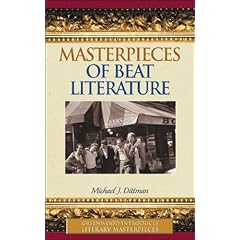
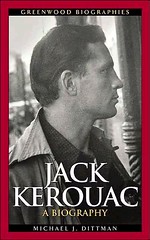
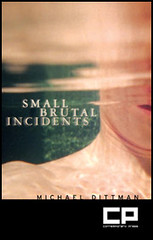


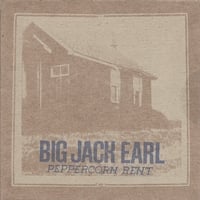
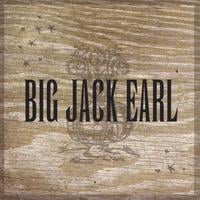
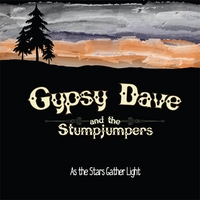
1 comment:
very nice blog......
i like your posting ,this is the better blog.
Bathmate
Post a Comment